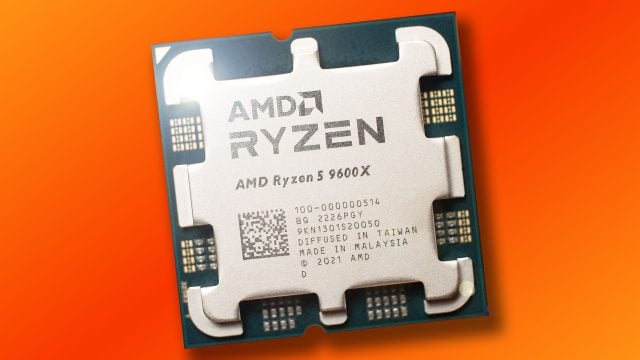9600X in Test: Cache Performance Increases with Zen 5

AMD announced the Ryzen 9000 Series desktop processors, which come with the brand new Zen 5 architecture, at the Computex fair. Doubling the L1 and L2 cache bandwidth is seen as the most important factor affecting performance. So how will these innovations affect performance? Ryzen 5 9600X engineering sample in AIDA64 testing for the first time appeared.
AIDA64 benchmarks reveal that the Ryzen 5 9600X offers almost 3,800 GB/s read bandwidth in L1 cache. Write bandwidth was tested at around 1,900 GB/s and copy speed was tested at almost 3,800 GB/s, just like the read speed. We also see a cache latency of under 1 nanosecond.
Ryzen 5 9600X vs Ryzen 5 7600X
Sharing the benchmark results, HLX also gave the results of the Ryzen 5 7600X with Zen 4 architecture so that we can make comparisons. The results are revealed in AMD’s Computex announcement. It confirms what they said. The Zen 4 CPU has almost 2x less raw bandwidth in L1 and L2 cache compared to the Zen 5-based Ryzen 5 9600X.
The previous generation 7600X can offer 2,000 GB/sec read/copy speed and 1,000 GB/sec write speed (with the same latency). The L2 cache is rated at just over 1,000 GB/s (a slightly lower but indistinguishable 2.6ns latency) for read, write and copy speeds.
| processor | Read | Don’t write | copy |
| Ryzen 5 9600X – L1 cache | 3,756.4 GB/s | 1,884.4 GB/s | 3,755.9 GB/s |
| Ryzen 5 9600X – L2 cache | 1,874.6 GB/s | 1,795.1 GB/s | 1,859.7 GB/s |
| Ryzen 5 7600X – L1 cache | 2,029.6 GB/s | 1,026.9 GB/s | 2,048.1 GB/s |
| Ryzen 5 7600X – L2 cache | 1,028.5 GB/s | 1,017.0 GB/s | 1017.6 GB/s |
Cache is undoubtedly one of the most important components in modern CPUs. A good caching system can feed the CPU cores with data consistently across multiple workloads with minimal downtime. A poor caching system will allow the cores to process data much more slowly than system memory. from the beginning Since it has to wait for the transfer to be made, it can provide low CPU performance.
We have yet to see how the L1 and L2 cache improvements in Zen 5 translate to real-world performance or even synthetic benchmark performance. However, these intense bandwidth improvements are among the improvements that helped increase the Zen 5 IPC by 16% compared to Zen 4.

